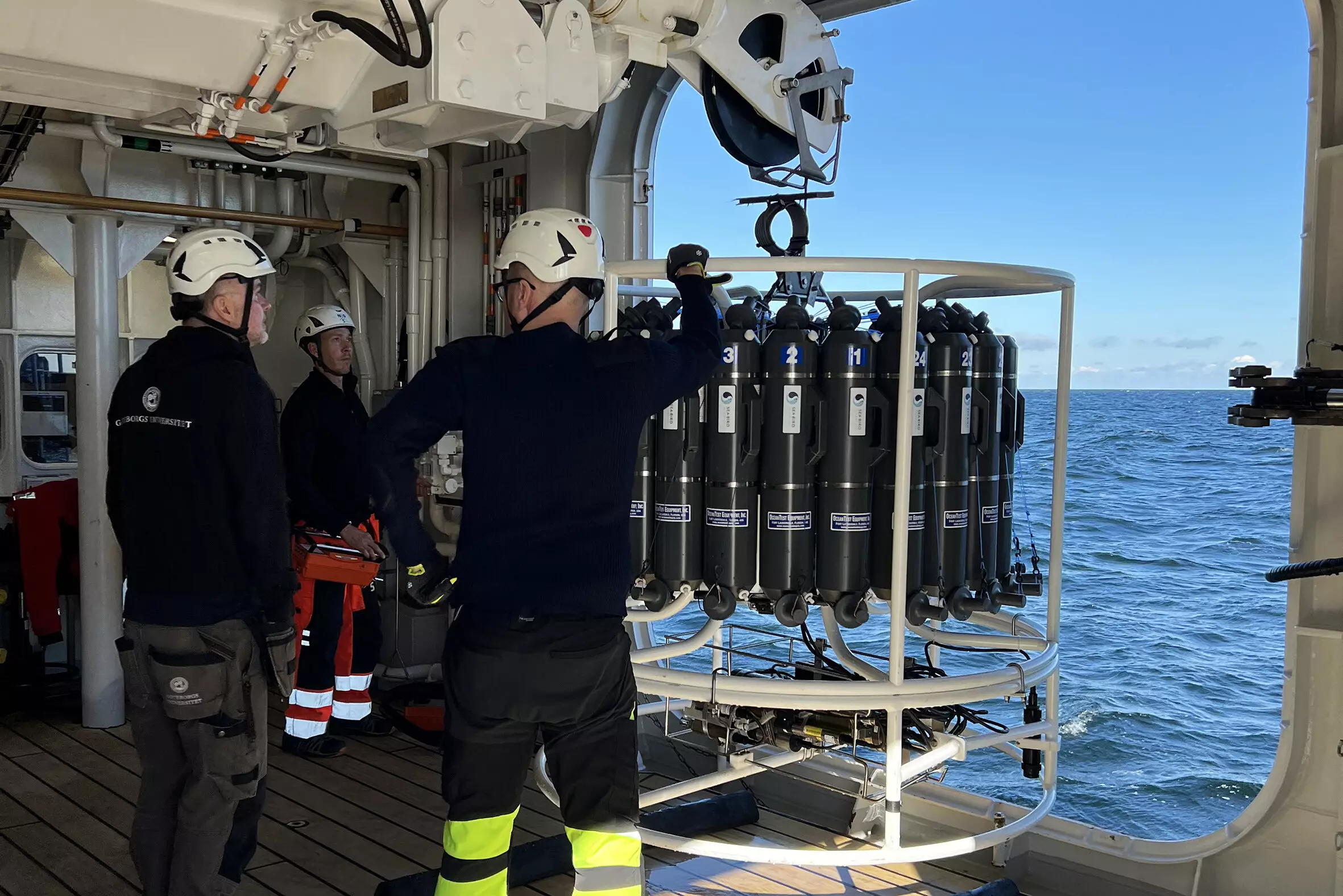The methane leak from the Nord Stream gas pipeline in the southern Baltic Sea led to one of the largest unnatural methane gas emissions in history. The University of Gothenburg conducted measurements following the explosion, revealing that a significant amount of the methane released remained in the water. According to their study published in Scientific Reports, between 10,000 and 50,000 tons of methane dissolved in the sea rather than reaching the surface. This poses potential threats to marine life in the affected area.
Professor Katarina Abrahamsson emphasized the importance of being able to differentiate the methane from the Nord Stream leak and the naturally occurring methane in the water. The isotopic composition of the methane coming from the gas pipeline differs from that of the methane produced during the decomposition of organic material in the bottom sediments. This distinction allowed the researchers to track the spread of the leaked methane and monitor its impact on the marine environment.
Although the methane was released into the water at a rapid pace, researchers observed little mixing in the water masses due to the stable stratification that typically occurs at the end of September. The leaked methane’s concentration varied significantly within the water layers. As the water temperature decreased in the autumn, it is assumed that the methane was diluted in a larger body of water. The long-term implications of these methane levels on the sea’s ecosystems remain uncertain.
It is too early to determine the exact effects of the elevated methane levels on marine life in the southern Baltic Sea. Researchers collected plankton samples in the affected area during the expedition, yet the analyses are still ongoing. Three months later, another visit to the site revealed high bacterial activity, indicating potential changes in the ecosystem. The impact on phytoplankton and zooplankton populations is yet to be fully understood, highlighting the need for further research and monitoring.
The Nord Stream gas pipeline leak in the southern Baltic Sea had significant environmental consequences, with a substantial amount of methane dissolving in the water. The long-term effects on marine ecosystems and biodiversity remain a subject of ongoing investigation. This incident underscores the importance of sustainable practices in offshore energy infrastructure to minimize the risk of environmental disasters and protect our oceans for future generations.


Leave a Reply